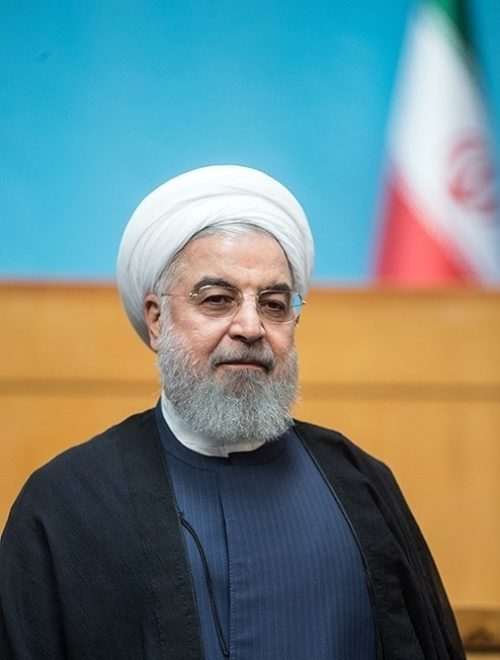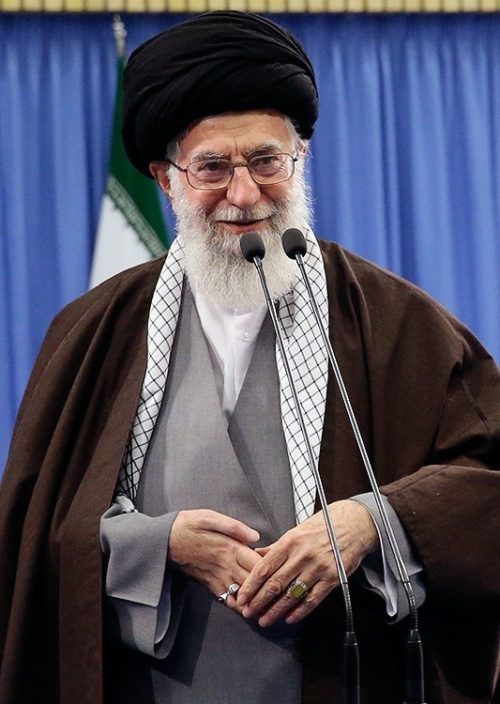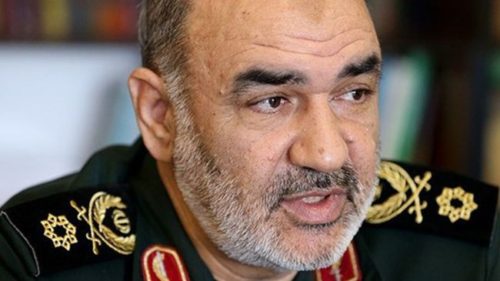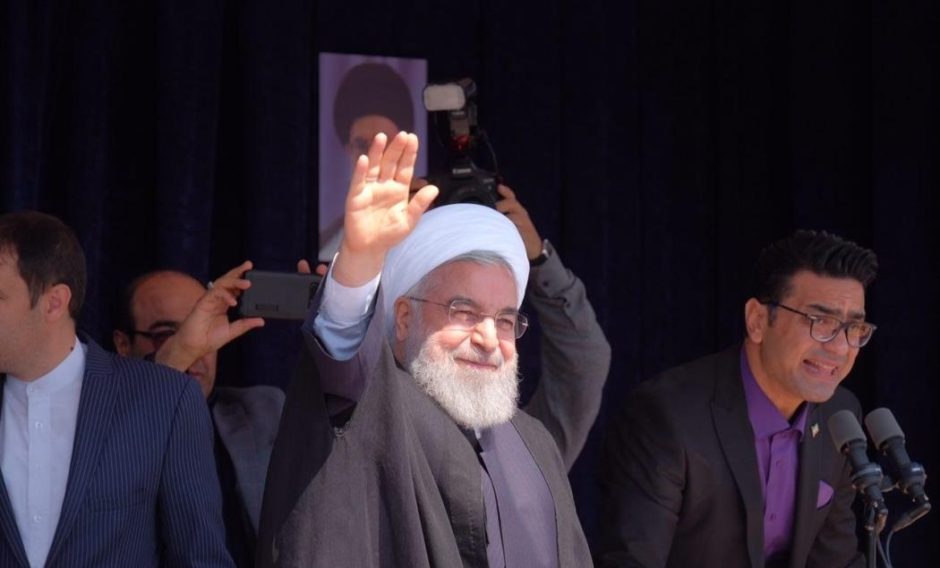By Iranian standards, Hassan Rouhani, the president of Iran, is something of a moderate. But when it comes to Israel, Rouhani is ideologically on the same page as Iran’s hard-line spiritual leader, Ayatollah Ali Khamenei, who never tires of threatening the Jewish state with destruction.

Addressing the annual Islamic Unity Conference in Tehran on November 24, Rouhani claimed that one of the “negative results” of World War II was “the formation of a cancerous tumor in the region.” He was, of course, referring to Israel, Iran’s arch nemesis. He then went on to describe Israel as a “fake regime” foisted upon the Middle East by Western colonial powers.
Rouhani’s contemptuous description of Israel was in keeping with the tenets of Iran’s theocratic leadership. Five and a half months ago, Khamenei branded Israel as a “cancerous tumor” that must be “removed and eradicated.” And he added, “It is possible and it will happen.”
Although Rouhani did not explicitly call for Israel’s destruction in his most recent speech, this was implicitly the essence of his truculent message. No other meaning can be inferred from his diatribe.
Until almost a year ago, Rouhani rarely mentioned Israel in his speeches. But since Israel began bombing Iranian military bases in Syria last winter and the United States withdrew from the Iran nuclear accord this past May, Rouhani has stepped up his verbal assaults against Israel.
Last June, during Jerusalem Day in Tehran, Rouhani declared, “Israel can never feel it is in a safe place.” And in a ringing endorsement of the “right of return,” a plan that would undermine Israel by demographic means, he predicted that the Palestinians “will return to their territories one day.”
In July, while visiting the Swiss capital of Bern, he lambasted the “Zionist regime as an illegitimate regime.”
And last September, in a speech at the United Nations General Assembly, Rouhani claimed that Israel is “blatantly threatening others with nuclear annihilation” and constitutes “the most daunting threat to regional and global peace.”
By any yardstick, Rouhani’s remarks have been offensive and false. But they have been relatively restrained in comparison to the vitriolic speeches delivered by other highly-placed figures in the Iranian regime.

Khamenei, for example, has attacked Israel relentlessly, having declared that the “Zionist regime will not last” and will “perish in the not-so-far future.” And in a reference to the Arab-Israeli conflict, he said, “By God’s grace, the Palestinian nation will certainly gain victory over (its) enemies and will witness the day when the fabricated Zionist regime will be eradicated.”
The deputy commander of Iran’s Revolutionary Guards, Hossein Salami, has followed Khamenei’s lead. Two months ago, in an arrogant but laughable threat, he urged Benjamin Netanyahu to leave Israel. As he put it, “I tell the prime minister of the Zionist regime to practice swimming in the Mediterranean because soon you will have no choice but to flee into the sea.”

Four months ago, he claimed that Hezbollah — Iran’s Lebanese ally — has the capability of destroying Israel. “We are creating might in Lebanon because we want to fight our enemy from there with all our strength,” he said. “Hezbollah today has tremendous might on the ground that can on its own break the Zionist regime. The Zionist regime has no strategic depth.”
It goes without saying that Israel should react to Iran’s blustery threats with the utmost seriousness, whether they emanate from a “moderate” like Rouhani or radicals like Khamenei and Salami.
Iran is an enemy that must be carefully watched and rigorously contained.
